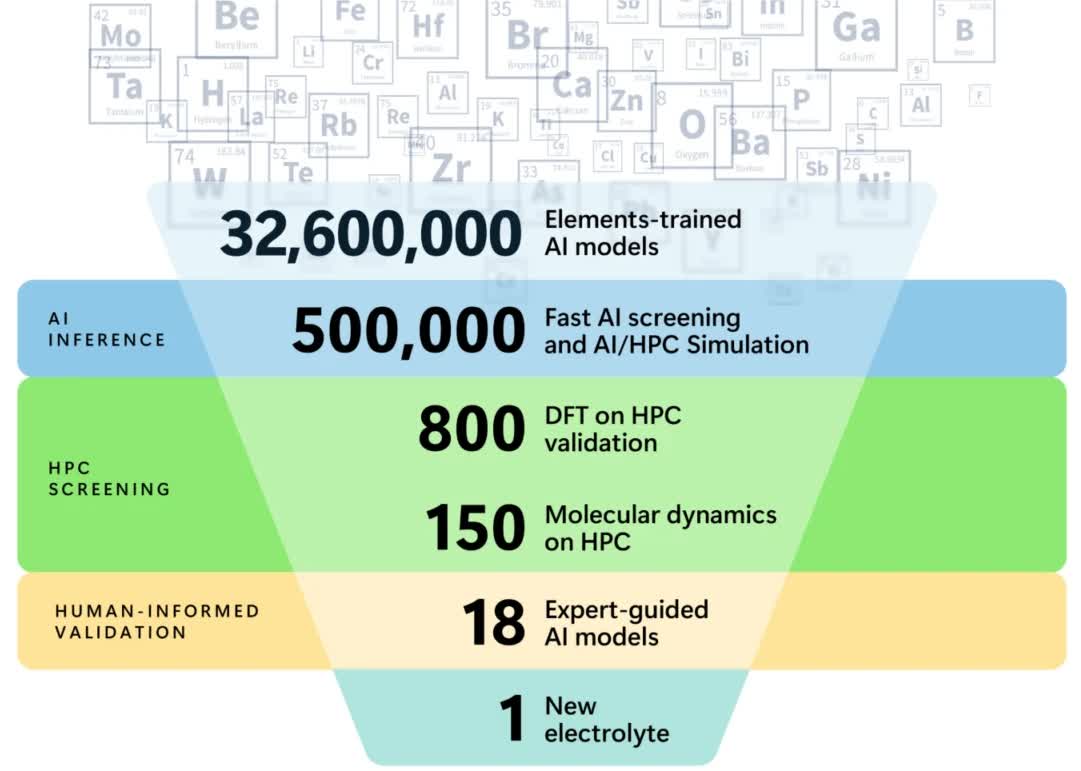Forward-looking: Modern lithium-ion rechargeable batteries rely on lithium and other rare earth metals. While they offer an efficient energy source with a longer cycle life, they can also pose environmental concerns and prove challenging to recycle.
Microsoft collaborated with the Department of Energy’s Pacific Northwest National Laboratory (PNNL) to discover a novel material that could alleviate the global dependence on lithium in the production of rechargeable batteries. Leveraging AI and the Azure Quantum Elements cloud platform, the Microsoft team significantly expedited the time-consuming research on materials not found in nature.
With Redmond’s high-performance computing (HPC) systems, the AI algorithms were able to predict the characteristics of new materials – such as energy, force, stress, electronic band gap, and mechanical properties. Microsoft and PNNL trained the AI models using millions of data points from simulations, resulting in a 1,500 times faster prediction of materials properties compared to traditional density functional theory calculations.
The selection process began with 32.6 million candidate materials and AI algorithms identifying 500,000 predicted stable materials. After screening for functional properties, the pool was further narrowed down to 800 potential candidates. Utilizing “AI-accelerated” simulations to explore dynamic properties like ionic diffusivity, the Microsoft Quantum team narrowed down the selection to 150 materials.
With the synergy of AI, the Azure Quantum Elements platform, and established scientific expertise, Microsoft claims that modern technology can condense the next 250 years of chemistry and materials science innovation “into the next 25.”

Practical considerations, including novelty, mechanics, and the availability of elements, were then factored in to identify a group of 18 top candidates. Leveraging PNNL’s expertise and insights for additional screening parameters, Microsoft researchers pinpointed the final candidate: an electrolyte material that uses approximately 70 percent less lithium than existing li-ion batteries, substituting some lithium with sodium.
The new material has already been synthesized by PNNL, and additional tests are planned to verify its stability and efficiency. Brian Abrahamson, chief digital officer at PNNL, said developing novel batteries is a crucial global challenge. Abrahamson stated that synthesizing and testing materials at a human scale is a labor-intensive and fundamentally limiting process.
With the synergy of AI, the Azure Quantum Elements platform, and established scientific expertise, Microsoft claims that modern technology can condense the next 250 years of chemistry and materials science innovation “into the next 25.” According to the Redmond corporation, AI will revolutionize every industry, unlocking a new era of scientific discovery.

